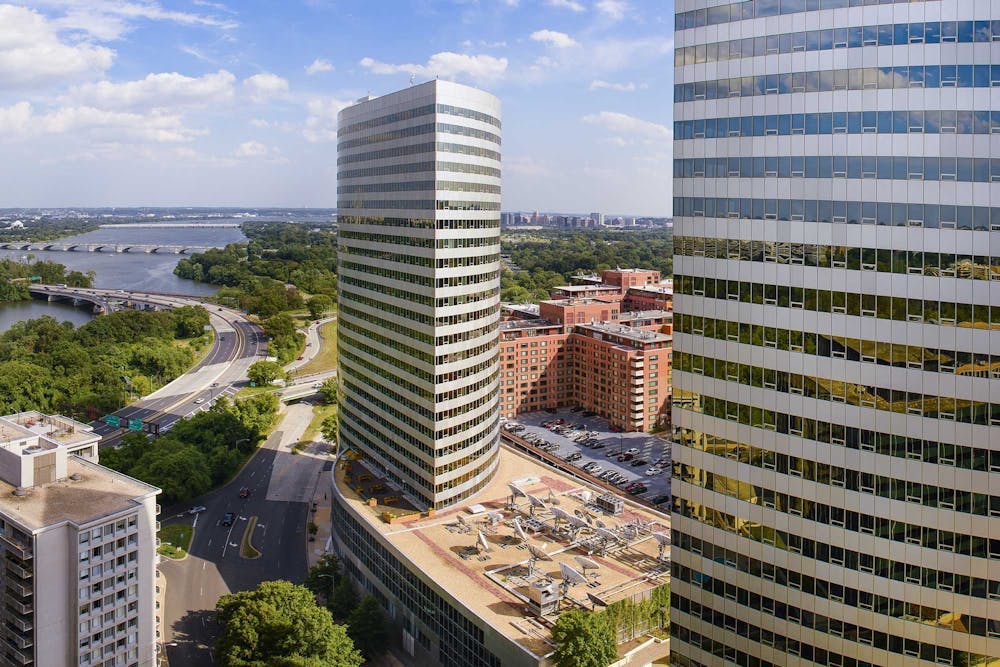The University recently announced a new campus, set to open in Fairfax County in 2025. The Fairfax campus will offer 8 of the 12 undergraduate and graduate schools offered on Grounds. This initiative advances the Great and Good agenda of University President Jim Ryan, which emphasizes, among other things, the importance of expanding the University’s socioeconomic accessibility. In keeping with this goal, the University has aspired to create a “Grounds away from Grounds” with regional campuses which primarily serve those who are seeking non-traditional experiences in higher education. The University’s expansion into Northern Virginia should be celebrated, as another laudable attempt to expand the accessibility of education initiatives and overcome the University’s inaccessibility.
The establishment of regional campuses is not new for the University. Founded in 1954 west of Charlottesville, UVA at Wise has been heralded as an accessible alternative to the University's main campus that boasts small class sizes, an intimate residence life and comparatively affordable tuition. Over the past decades, the campus has undergone massive growth, offering a variety of pre-professional and liberal arts programs.
Through the success of Wise, the University has served populations in Appalachia, where postsecondary and higher education are typically out of reach. As national tuition continues to rise and acceptance rates continue to fall, higher education seems more unattainable than ever, and regional campuses like that at Wise offer a unique way to make higher education more accessible both geographically and financially. The popularity of the Wise program reaffirms the notion that the University has both a duty to provide education to underserved areas.
Placement in certain regions, specifically in Northern Virginia’s urban environment, can reach different students and offer unique educational opportunities. Examining common perspectives of higher education, the conventional University experience is perceived as a four-year degree in Charlottesville — which is not an accessible reality for all prospective college students. Socioeconomic circumstances, which dissuade applicants from the main campus, are exactly what the regional Northern Virginia campus seeks to accommodate. For example, the Accelerated Master’s program and hybrid classes flexibly acknowledge that students who choose to pursue education in this manner are unable to commit to being full-time students. In this way, the University expands its scope and the diversity of the backgrounds it serves through this new campus.
The new Northern Virginia campus serves more than just adults. The campus includes high school summer programs to appeal to a wider student demographic, equipping young students with the tools needed to succeed in their coming years. Specifically, the Inspire program provides one to two week sessions on various topics to give students a taste of university-structured coursework and an opportunity to explore career pathways before going to college. Such programs work to further the mission of accessibility by improving communities beyond those involved in the University’s degree programs and assisting in potential academic and pre-professional endeavors.
Some have criticized the University for adding resources to an area that is already extremely developed and well-resourced. This critique paints Northern Virginia in broad strokes and neglects the fact that Northern Virginia is both densely populated and one of the most ethnically diverse regions in the country. Once the University invests in Northern Virginia through this regional campus, a larger, more diverse swath of Virginians will be exposed to the University’s programs and pre-professional opportunities. All of these attributes of the area spell an immense return on the investment into the area, as well as a greater diversification of the student body across the state. And it is about more than just this one location. In targeting this area, the University may use this success to propel further expansion into other underserved communities. The Northern Virginia campus is indicative of a larger initiative and a larger imperative to expand into other underserved areas.
In expanding the University’s mission from Charlottesville, to Wise and now Northern Virginia, the University not only expands its influence and reaches new populations — rather, it also contests conventional conceptions of what constitutes higher education. As one of the most prestigious public universities in the country, it is imperative that we continue to push the importance of accessibility to education — regardless of socioeconomic status, region of residence or prior experience. To truly achieve the goals of socioeconomic diversity of the Great and Good plan, this campaign must continue to expand its scope beyond Charlottesville.
Farah Eljazzar is an opinion columnist who writes about identity and culture for The Cavalier Daily. She can be reached at opinion@cavalierdaily.com.
The opinions expressed in this column are not necessarily those of The Cavalier Daily. Columns represent the views of the author alone.







